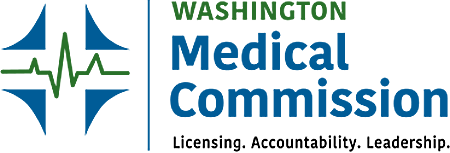Communication and Resolution Program Certification: The Value of Collaboration to Improve Patient Safety after Adverse Events
Webinar Resources
Coffee with the Commission Recording
Connect with Felicidad Smith, MPH - CRP Manager, Foundation for Health Care Quality at fsmith@qualityhealth.org
CRP literature compiled by the Collaborative for Accountability and Improvement
Upcoming Webinar -Introduction to FHCQ's CRP Screening and Certification
3/7/2024 - 3/7/2024
11:30 AM - 12:30 PM PST
More Information
Coffee with the Commission is a time to discuss emerging topics with the Washington Medical Commissioners and subject matter experts. We will be joined for this edition by Felicidad Smith, MPH - CRP Manager at the Foundation for Health Care Quality. She will provide an overview of Communication and Resolution Programs (CRP) and there will be ample time for your questions.
Event Description
Despite the best efforts of healthcare professionals, systemic faults leave chance that a medical error may occur. Adverse events where a patient is unintentionally harmed during their care can be dangerous, leading to injury or even death. Medical errors are preventable and they require systems change to reduce the risk of harm to future patients.
Over the years, momentum has been building for the adoption of a “Just Culture” in healthcare. In the Institute of Medicine’s groundbreaking report, To Err is Human, the report found that the most effective way to reduce errors and enhance safety in high-risk industries is to not blame individuals. Instead, a cultural shift that promotes transparency, creates a safe environment for reporting errors, identifies the root causes, and takes action to prevent future errors can take patient safety measures to new heights.
The fear of harsh disciplinary actions can prevent healthcare workers from reporting errors made by themselves or their colleagues. However, Just Culture recognizes that medical errors often involve competent providers working in flawed systems. Just Culture replaces hostility with a team-oriented process that encourages open error reporting, responding to mistakes with enhanced training and supervision, and a drive to learn from medical errors. Communication and Resolution Programs (CRPs) provide a framework for organizations to activate Just Culture principles and contribute to state-wide learning from adverse events.



